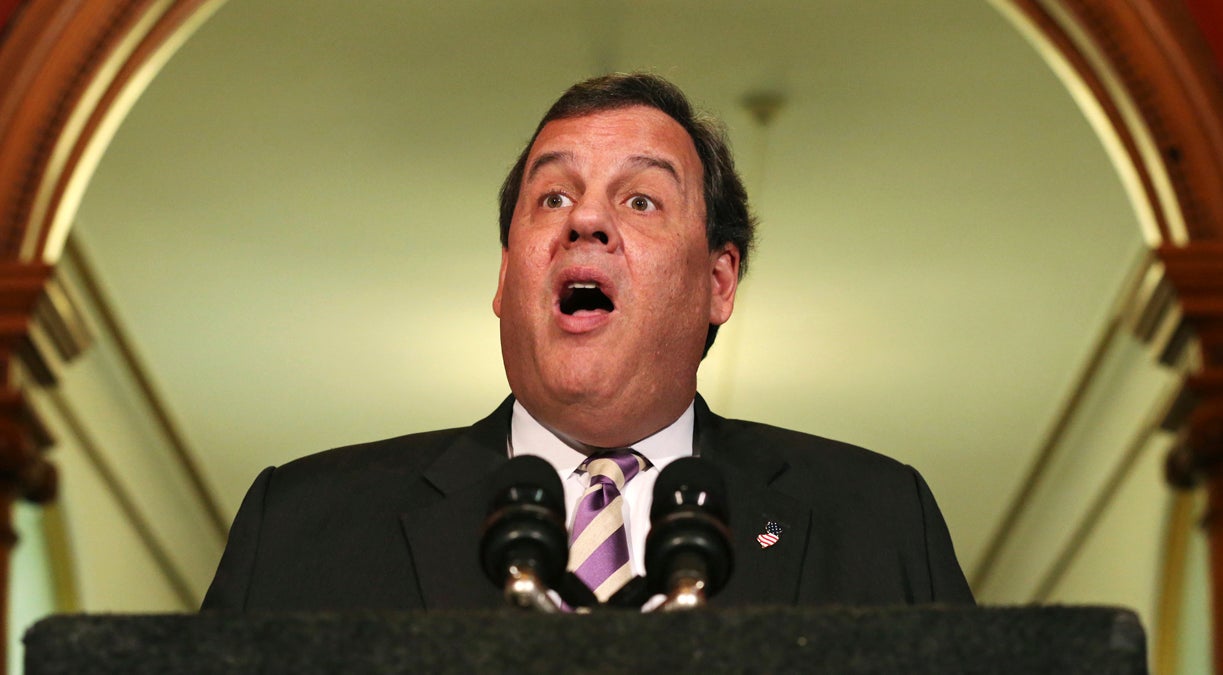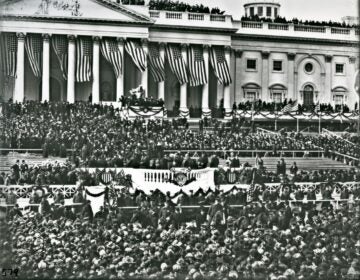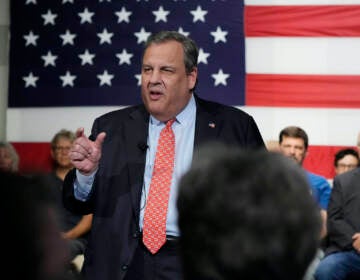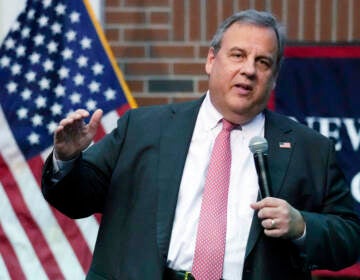Governor Christie’s sleazy deal has been exposed

File Photo: Gov Christie announces a plan to renovate the Statehouse on Tuesday
As political blunders go, this one was a beaut!
First, convene a secret meeting with legislative leaders to structure a deal to award $10 million in salary increases to dozens of state and local officials in return for repealing a law to permit the governor to reap profits from a book deal while still in office.
Second, remove the statutory mandate that the government purchase advertising space in newspapers to inform constituents of pending actions and justify it as a cost-savings measure.
Third, accomplish all of it in the final week of the current legislative session during the run-up to the busiest holiday season of the year.
Clearly missing from the meetings between the governor and legislative leaders was a rational mind, one that would have prompted warnings that the entire scheme was sheer lunacy and would produce a popular backlash that would reflect poorly on everybody involved.
The entire plan collapsed, crushed by outraged legislators whose offices were besieged by constituents angry over the money grab and the casual brushing aside of a longstanding ethics law that prohibits a governor from receiving income beyond the office’s annual salary.
Even the newspaper business — struggling under economic pressures and supposedly losing its clout to influence events — rose up, flexed its remaining muscles, and defeated what came to be called Christie’s “newspaper revenge” bill.
The entire exercise could not have worked out worse for the administration and the legislative leadership of both parties.
The salary increase and book-deal legislation never made it to the floor of the Assembly and any further action on the revenge bill was put off until the 2017 session.
Translation: Stick a fork in them; they’re done.
For Christie, the fallout was swift and devastating. It represented a stinging defeat, underscoring his lame-duck status as well as a job-approval rating bouncing around in the mid-teens.
It effectively ended his ability to impose the iron discipline on his party that produced an unbroken streak of sustaining more than 50 gubernatorial vetoes, while commanding nearly unanimous support for his agenda.
It was an embarrassment, too, for state Senate President Steve Sweeney (D-Gloucester), Assembly Speaker Vincent Prieto (D-Hudson), Senate Minority Leader Tom Kean Jr. (R-Union), and Assembly Minority Leader Jon Bramnick (R-Union).
The leaders were the core group who negotiated the package with Christie, agreeing not only to the substance of the proposals but to the unseemly haste with which the package would move through the process.
The apparent failure of any of the four to raise questions about the propriety, for instance, of doling out pay raises to high-ranking officers while the state struggled to find resources for clearly more pressing needs was astonishing.
They were equally tone deaf to the message that would be delivered by permitting Christie to profit from a potential book deal while still in office. The law was designed specifically to prevent any governor from receiving compensation from outside sources to which he or she would owe some measure of official gratitude.
Taking on the news media — economically wounded as it is — was nonsensical in the extreme. The rationalization that it would save money and result in property-tax relief was soundly rejected in favor of the more credible explanation — that it was Christie’s way of striking back at the media for what he felt was its unfair coverage of his administration and, in particular, the George Washington Bridge lane-closing scandal.
It didn’t help that the administration plucked a number out of the ether — $80 million — as the estimated taxpayer savings, only to see the claim thoroughly discredited by independent sources.
The entire seamy episode falls directly and heavily on the governor. The proposals did not bubble up from the Legislature, nor were they recommendations from a study commission or research organization.
They originated in Christie’s office, and he took the lead in advocating for them. While there is certainly enough blame to go around, the bulk of it rests with the governor.
It was a miscalculation of immense proportions, committed by a governor in league with experienced, savvy legislators who have proven fairly sure-footed in navigating the perils and pitfalls of New Jersey politics.
They felt, perhaps, that the speed with which the Legislature was to act was such that opposition would have insufficient time to build into a formidable force. It would be a done deal before people had an opportunity to fully understand what was in it.
Or, it was simply a matter of arrogance run amok, a conviction that given the “something for everybody” components of the deal, approval was guaranteed.
Christie and the legislative leadership either badly misread or chose to ignore a political environment dominated by a distrust of government and a deeply held skepticism of the motives of elected officials.
They were quickly viewed as trying to pull a fast one to benefit themselves at the expense of the taxpayers.
Christie will enter 2017 a seriously weakened chief executive, counting the days remaining in his term while the political cognoscenti continue to speculate about the reasons for his failure to secure a position of some prominence in the Trump Administration.
It is a virtual certainty that Democrats will regain the governor’s office next year and retain control of the Legislature, in all likelihood until after the legislative district lines are reconfigured based on the 2020 census.
It’s also certain that the next governor will not propose salary increases or an easing of executive-branch ethics regulations. And, he sure as hell won’t pick a fight with newspapers.
Carl Golden is currently a senior contributing analyst with the William J. Hughes Center for Public Policy at Stockton University.
___________________________________________
NJ Spotlight, an independent online news service on issues critical to New Jersey, makes its in-depth reporting available to NewsWorks.
WHYY is your source for fact-based, in-depth journalism and information. As a nonprofit organization, we rely on financial support from readers like you. Please give today.




